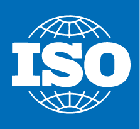The International Organization for Standardization (ISO) recently approved the creation of a project committee mandated to develop an international standard on energy management.
The standard will provide all types of organizations and companies a practical and widely recognized approach to increase energy efficiency, reduce costs and improve their environmental performance by addressing both the technical and management aspects of rational energy use. The standard is intended to be broadly applicable to various sectors of national economies, including utility, manufacturing, commercial building, general commerce and transportation sectors, and could therefore have influence on as much as 60% of the world’s energy demand.
ISO Secretary General Alan Bryden commented: “The urgency to reduce GHG emissions, the reality of higher prices from reduced availability of fossil fuels and the need to promote energy efficiency and the use of renewable energy sources provide a strong rationale for developing this new standard building on the most advanced best practices and existing national or regional standards.”
Following the successful examples of the ISO 9000 series on quality management and the ISO 14000 series on environmental management, the project committee ISO/PC 242, Energy Management, will consider the development of a standard containing relevant terms and definitions and providing management system requirements together with guidance for use, implementation, measurement and metrics.
The standard will be based on the continual improvement and Plan-Do-Check-Act approach utilized in ISO 9001 and ISO 14001 to provide compatibility and integration opportunities.
Among the main benefits of the future standard are that it will:
• Provide organizations and companies (utilities, manufacturers, commerce, buildings, transportation, both private and public) with a well-recognized framework for integrating energy efficiency into their management practices;
• Offer organizations with operations in more than one country a single, harmonized standard for implementation across the organization;
• Provide a logical and consistent methodology for identifying and implementing improvements that may contribute to a continual increase in energy efficiency across facilities;
• Assist organizations to better utilize existing energy consuming assets, thus reducing costs and/or expanding capacity;
• Offer guidance on benchmarking, measuring, documenting and reporting energy intensity improvements and their projected impact on reductions in GHG emissions;
• Create transparency and facilitate communication on the management of energy and promote energy management best practices, thus reinforcing the value of good energy management behaviors;
• Assist facilities in evaluating and prioritizing the implementation of new energy-efficient technologies;
• Provide a framework for organizations to encourage suppliers to better manage their energy, thus promoting energy efficiency throughout the supply chain; and
• Facilitate the use of energy management as a component of GHG emission reduction projects.
Source: ISO


